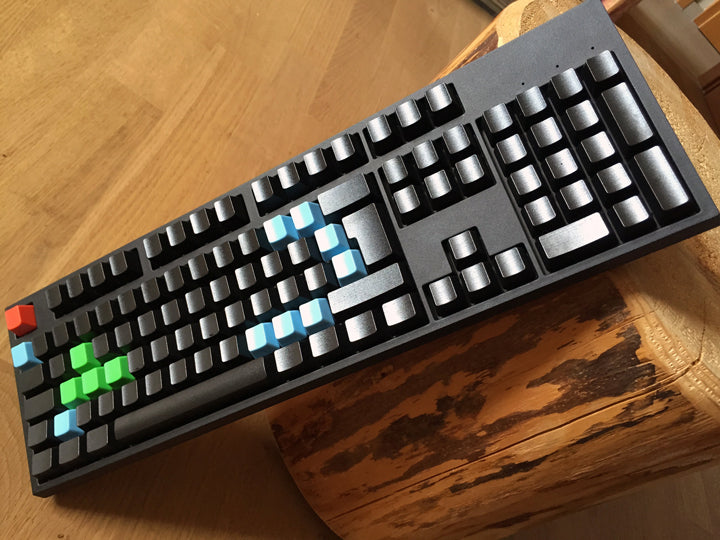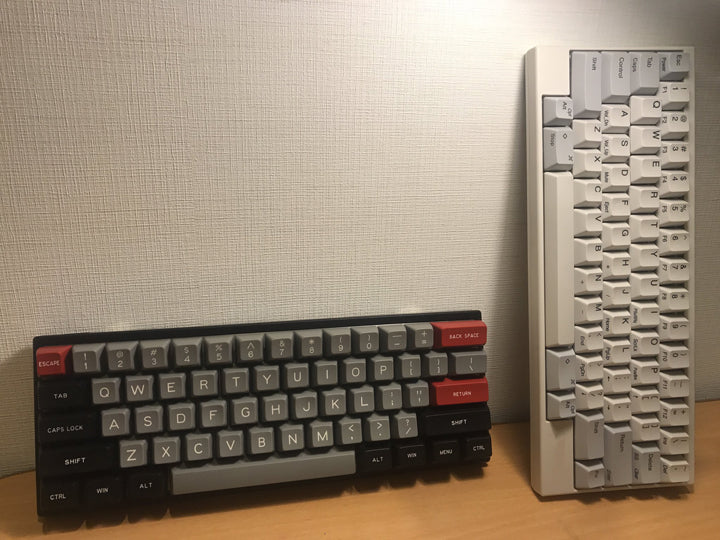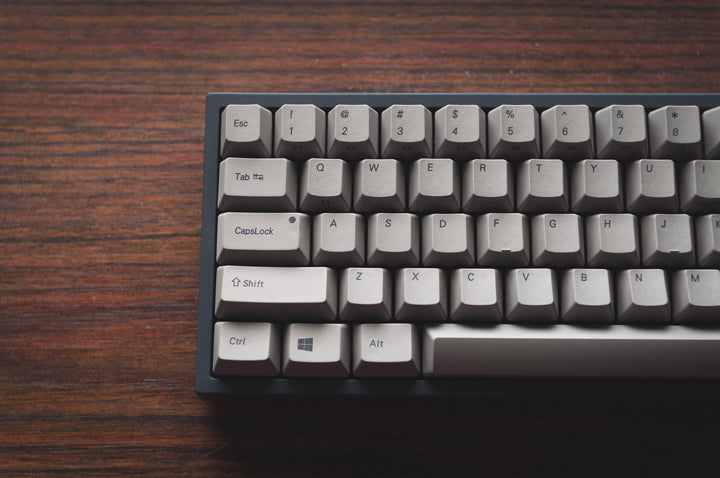In the world of computer peripherals, mechanical keyboards have become the go-to choice for hobbyists and professionals alike. Satisfying tactile feedback and the distinctive click of mechanical switches elevate the viewing, typing and gaming experience. As technology has advanced, Wireless and Bluetooth Mechanical Keyboards have emerged, offering the convenience of wireless connectivity. But how exactly do Bluetooth and wirelessly connected keyboards work, and can they maintain the same level of performance as Wired Keyboards? Let's delve into the Performance(mechanics) and Connectivity(intricacies) of wireless mechanical keyboards to uncover the truth.

Content
- Introduction
-
Understanding Mechanical Keyboards
The Magic of Mechanical Switches
Benefits of Mechanical Keyboards -
The Evolution of Wireless Keyboards
Radio Frequency (RF) Connection
Bluetooth Connectivity -
Inner Workings of Wireless Mechanical Keyboards
Battery and Power Management
Signal Transmission
Input Lag Concerns -
Performance Comparison: Wired vs. Wireless Mechanical Keyboards
Debunking Latency Myths
Real-World Performance Assessment -
Overcoming Connectivity Challenges
Interference and Range Limitations
Advancements in Wireless Technology -
User Experience and Personal Preferences
Ergonomics and Typing Comfort
Versatility and Portability -
The Future of Mechanical Keyboards
Technological Innovations
User-Centric Designs - Conclusion
- FAQs
Introduction
At a time when wires and cables are becoming a thing of the past, wireless technology has transformed our lives, enhanced our quality of life, and changed the face of computer peripherals. known for their robustness and distinctive typing feel, mechanical keyboards have seamlessly embraced wireless connectivity, liberating users from the tangle of cords. However, concerns about performance, latency, and reliability naturally arise when it comes to these wireless iterations.
Understanding Mechanical Keyboards
The Magic of Mechanical Switches
At the heart of every mechanical keyboard are switches that comprise intricate mechanical components. These Mechanical Switches utilize individual mechanical assemblies for each key, providing unmatched tactile feedback and audible clicks. When the key is pressed, the components of the switch will cooperate to register the input, respond quickly, and press multiple keys at the same time for comfort, unlike a membrane keyboard that can only be input sequentially. This makes mechanical keyboards ideal for typing enthusiasts and gamers.
Benefits of Mechanical Keyboards
There are many reasons why mechanical keyboards are favored, including their durability, key rollover (simultaneous key recognition) and customizable keycaps, comfortable typing feel, nice tapping sound, etc. Each key's independent switch contributes to the elimination of "ghosting," where unregistered key presses occur due to quick typing or gaming maneuvers.
The Evolution of Wireless Keyboards
Radio Frequency (RF) Connection
The initial foray into wireless keyboards involved radio frequency (RF) connections. RF dongles plugged into USB ports, establishing a communication link between the keyboard and the computer. While effective, these early wireless keyboards suffered from susceptibility to interference and limited range.
Bluetooth Connectivity
Bluetooth, a wireless technology standard, revolutionized the way devices communicate. Bluetooth Mechanical Keyboards leverage this standard to connect to devices like laptops, tablets, and smartphones. This seamless connection eliminates the need for additional dongles and offers improved compatibility.

Inner Workings of Wireless Mechanical Keyboards
Battery and Power Management
Wireless mechanical keyboards house rechargeable batteries to sustain their operation. Efficient power management technologies ensure extended usage before recharging. Some keyboards even incorporate solar panels or kinetic charging to enhance their battery life.
Signal Transmission
Bluetooth keyboards transmit signals through radio waves on a designated frequency. Advanced encryption techniques safeguard against unauthorized access or interference, addressing security concerns.
Input Lag Concerns
One of the primary concerns with wireless keyboards is input lag—the delay between pressing a key and the corresponding action on the screen. While this was an issue in the past, modern wireless technology has significantly reduced input lag, making it virtually imperceptible to the average user.

Performance Comparison: Wired vs. Wireless Mechanical Keyboards
Debunking Latency Myths
The notion that wired keyboards outperform wireless ones in terms of latency is becoming outdated. Technological advancements have minimized latency in wireless keyboards to a point where the difference is negligible for most users.
Real-World Performance Assessment
In real-world scenarios, the disparity in performance between Wired and Wireless Mechanical Keyboards is often imperceptible. Typing speed, gaming accuracy, and user experience remain consistent across both types.

Overcoming Connectivity Challenges
Interference and Range Limitations
Interference from other electronic devices can disrupt wireless keyboard connectivity. Bluetooth keyboards have a standard range of about 30 feet, which is sufficient for most use cases but may present limitations in larger environments.
Advancements in Wireless Technology
Continued advancements in wireless technology, such as Bluetooth 5.0 and beyond, promise enhanced range, stability, and data transfer rates. These improvements further bridge the gap between wired and wireless mechanical keyboards.

User Experience and Personal Preferences
Ergonomics and Typing Comfort
Ergonomics play a vital role in user satisfaction. The design of wireless mechanical keyboards ensures that users can type comfortably for extended periods, promoting better posture and reducing the risk of repetitive strain injuries. Get WhatGeek Ergonomics Mechanical Keyboards.
Versatility and Portability
Wireless mechanical keyboards shine in terms of versatility and portability. They cater to users who frequently switch between devices or work remotely. The absence of cables enhances desk aesthetics and reduces clutter.
The Future of Mechanical Keyboards
Technological Innovations
The future of mechanical keyboards is brimming with exciting possibilities. From novel switch designs to more efficient wireless protocols, ongoing innovation will likely eliminate the existing gap between wired and wireless performance.
User-Centric Designs
Manufacturers are focusing on user-centric designs that meld performance, aesthetics, and functionality. As wireless mechanical keyboards become more commonplace, attention to user needs will be a driving force behind their evolution.

Conclusion
In the world of mechanical keyboards, wireless and Bluetooth link models have shattered the constraints of cords without compromising on performance. Modern wireless technology, coupled with meticulous engineering, has led to a scenario where the disparity between wired and wireless mechanical keyboards is nearly indiscernible to the average user. As the realm of technology continues to evolve, the future holds the promise of even more seamless, efficient, and User-friendly Mechanical Keyboards.

FAQs
Q: Are wireless mechanical keyboards as responsive as wired ones?
A: Yes, advancements in wireless technology have significantly reduced input lag, making wireless mechanical keyboards just as responsive as their wired counterparts.
Q: Can I connect a wireless mechanical keyboard to multiple devices?
A: Many wireless mechanical keyboards support multi-device connectivity, allowing you to switch between devices with ease.
Q: Do wireless mechanical keyboards require frequent charging?
A: Wireless mechanical keyboards come with efficient power management, offering extended usage before needing a recharge.
Q: Are wireless mechanical keyboards more prone to interference?
A: While wireless keyboards can be susceptible to interference, modern encryption and wireless standards have minimized this issue.
Article Directory
Introduction Understanding Mechanical Keyboards The Magic of Mechanical Switches Benefits of Mechanical Keyboards The Evolution of Wireless Keyboards Radio Frequency (RF) Connection Bluetooth Connectivity Inner Workings of Wireless Mechanical Keyboards Battery and Power Management Signal Transmission Input Lag Concerns Performance Comparison: Wired vs. Wireless Mechanical Keyboards Debunking Latency Myths Real-World Performance Assessment Overcoming Connectivity Challenges Interference and Range Limitations Advancements in Wireless Technology User Experience and Personal Preferences Ergonomics and Typing Comfort Versatility and Portability The Future of Mechanical Keyboards Technological Innovations User-Centric Designs Conclusion FAQs



